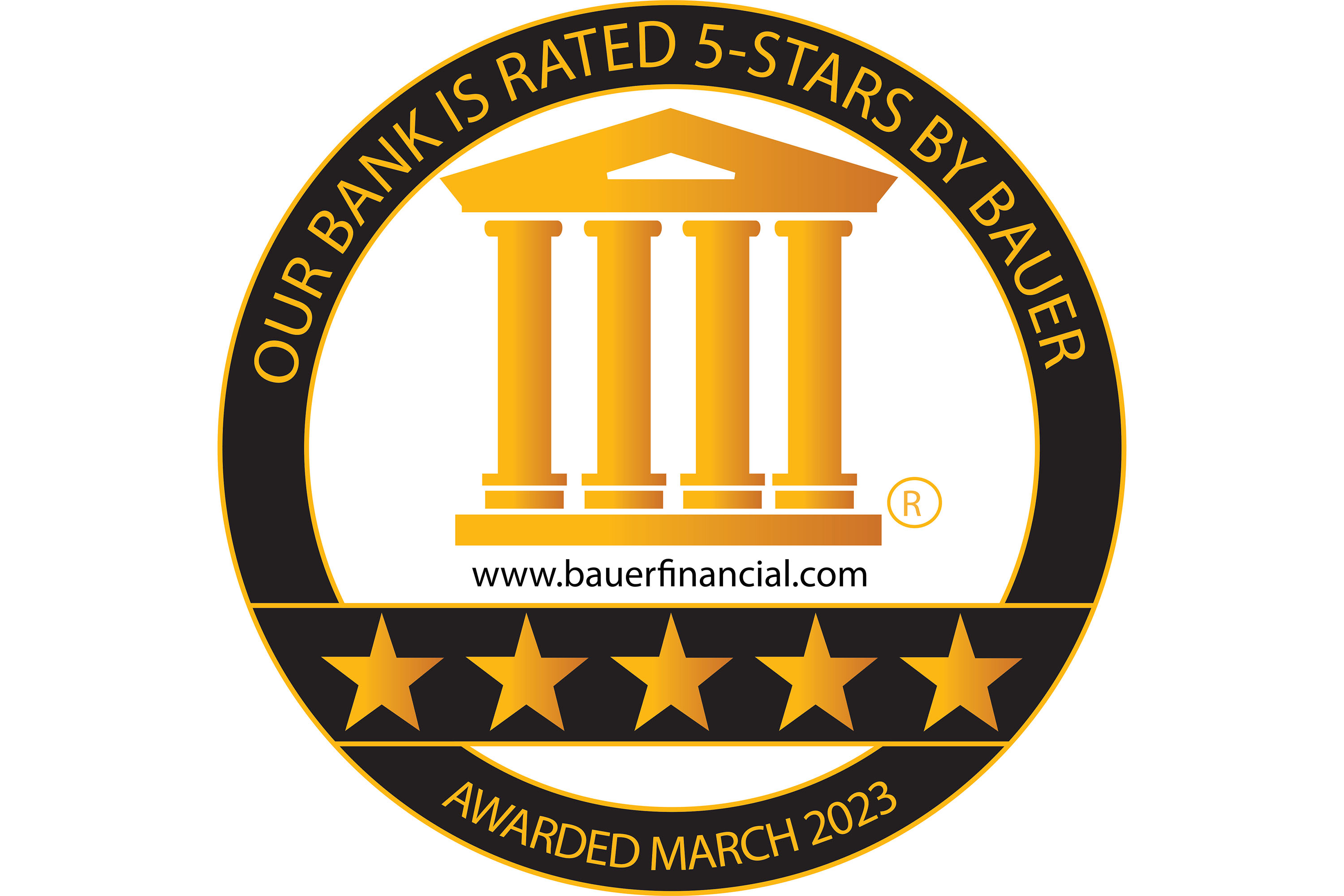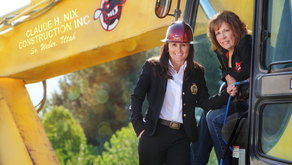Having worked as a community banker for going on five years, I’ve noticed there’s a familiar hum to my branch: the steady click-clack of keyboards, the comfortable cadence of longtime customers walking across the lobby and polite greetings in the line. Occasionally, distinct pauses in footsteps hint that someone new is trying to navigate an unfamiliar space, not quite knowing where to go. I recognized that sound one afternoon last year.
A gentleman — not a regular at the branch — walked into the lobby. When I introduced myself he said, “I’m not a customer here. I’m just very worried about my money.” Interestingly, his concern wasn’t rooted in the typical (but still important!) financial concerns of rates, fees and the best account for his goals. Instead, he wanted to know: “Is my money truly safe in a bank?”
In the wake of five banks failing in 2023, “Is my money safe” is a question I hear more often these days. It’s a good one — in both challenging and good times — because finding a bank that puts your financial well-being first should always be a priority.
That’s why, beyond the usual considerations and practical elements of banking, I want to share six of the more unusual questions you should ask before entrusting your hard-earned money to a financial institution.
6 Unexpected Questions to Ask to Find a Bank You Can Trust
1. How long has the bank been in business?
Choosing a bank with a long history is extremely valuable because:
- It’s been through it all. It’s seen ups and downs, recessions and booms, and is still going. This means the bank may be in a better position to keep your money safe in every kind of economic environment.
- Its employees know you. They’ve been serving customers like you for generations. They understand your needs and values, and they’re invested in building long-term relationships.
- It’s wise and adaptable. Many valuable lessons come with decades of experience. The bank has learned what works and what doesn’t, kept pace with technology, and honed its products, services and skills to offer you the very best.

In addition to longevity, research how strong the bank is financially. The Bauer rating, for example, is a respected indicator of a bank’s financial health. It provides an objective assessment, on a five-star scale, reflecting the institution’s overall stability and performance. A higher Bauer rating typically indicates greater financial strength and a more secure foundation for your money. To find a financial institution’s Bauer rating, visit www.bauerfinancial.com.
For true peace of mind, choose a bank with a long history and a strong rating.
2. Are there financial experts on staff?
Choosing a bank should be about more than just depositing and withdrawing funds. To truly thrive financially, you need a partner who goes beyond routine tasks and serves as your trusted financial guide. This is where proactive, knowledgeable advisors and bankers become invaluable.
They should be willing and able to help you in areas such as:
- Budgeting
- Saving
- Buying a home
- Planning for retirement
- Making a large purchase
- Securing personal or business loans
- Managing debt and more
The key is to find a bank with a comprehensive team of advisors. Ask about their qualifications and experience. Discuss your financial goals with them and make sure they actively listen to your questions and concerns. Look on the bank’s website to make sure its bankers have expertise in various areas, so you get the information you need across your full financial journey.
3. How important is customer service to the bank?
Choosing a bank with a culture rooted in customer service fosters a relationship built on trust. Seek a bank that:
- Calls you by name and knows your preferences
- Anticipates your needs and offers personalized solutions
- Proactively communicates with you
- Treats you with respect and empathy
Determining the quality of customer service at a bank requires a little investigative work. Check review platforms like Google to see customer feedback on areas like responsiveness, helpfulness and problem-solving. Look for banks that have been recognized for their customer service in reputable publications. Visit or call to ask questions and to get an idea for the bank’s communication style.
4. Does the bank have a physical presence or digital convenience or both?
Choosing a bank that suits your usability preferences is important, but there’s also more to consider. While online banking may align with your lifestyle, having a nearby physical branch adds a crucial dimension to the banking experience.
When exploring your options, consider the value of "phygital" services, which blend the physical and digital aspects of banking for flexibility. With this approach, you can access resources on your terms, combining digital convenience with in-person assistance for more nuanced tasks. Make sure you can use the tools you want, whether online or in the branch, without being limited to specific channels. This way, the bank fits your needs and how you like to do things.
Visit the bank’s website to find a branch/ATM locator and explore the site to learn more details about the digital accounts and features that are available.
5. How does the bank protect my money?
Choosing a bank that provides the highest level of protection allows you to achieve your financial goals with confidence and peace of mind. Look for a bank that takes your financial security seriously and equips you with proactive tips and tools.
When it comes to your deposits, the FDIC (Federal Deposit Insurance Corporation) offers a baseline by insuring deposits up to $250,000. You can find member banks listed on the FDIC’s Bank Find platform. However, for a comprehensive defense against cyber threats, data breaches and fraudulent activity, seek a bank that goes above and beyond, offering:
- Rigorous data encryption
- Access controls and multifactor user authentication
- Security updates and transparent communication
- Educational resources to enhance your own approach to financial security
Many banks outline their security protocols on their websites. Search there for financial security or call or visit a branch to ask more questions. Again, don’t take this one lightly!
6. Does the bank care about the community?
Choosing a bank that gives back to the community improves your life and the lives of your neighbors. When considering a bank, don’t hesitate to ask about its commitment to community reinvestment. Does it:
- Support local events and community organizations, and sponsor worthy initiatives
- Encourage and facilitate employee volunteerism within the community
- Align with your values and interests
Visit the bank’s website and social media outlets to see how it’s engaged in local events and organizations. Look up its Community Reinvestment Act (CRA) rating. This federal act mandates banks to meet the credit needs of their communities, particularly in low-income and minority neighborhoods. Higher ratings indicate stronger community reinvestment.
And, of course, you can always come into a branch to talk about community involvement. Ask about specific initiatives, unique programs and the bank’s overall philosophy on community.
Final Thoughts
“Is my money truly safe in a bank?” Just like I told the gentleman who walked into my branch with that question, “I’m glad you asked.” It’s normal to want more than just convenience from your bank. You want trust, you want security, and you want to know your financial well-being matters.
So reach out! Feel free to ask the questions I provided.
We’re here to answer them — to lend a listening ear and a helping hand, whether you’re a current Bank of Utah customer or not. Because in the end, it’s all about making sure you can be financially successful and confident, now and in the future!
 Michelle Meyer brings almost four years of valuable experience to Bank of Utah, where she took on the role of branch manager for the Ben Lomond branch in 2023. Born and raised in Ogden, she is a graduate of Weber State University. Michelle and her husband of 26 years are the proud parents of six children.
Michelle Meyer brings almost four years of valuable experience to Bank of Utah, where she took on the role of branch manager for the Ben Lomond branch in 2023. Born and raised in Ogden, she is a graduate of Weber State University. Michelle and her husband of 26 years are the proud parents of six children.




